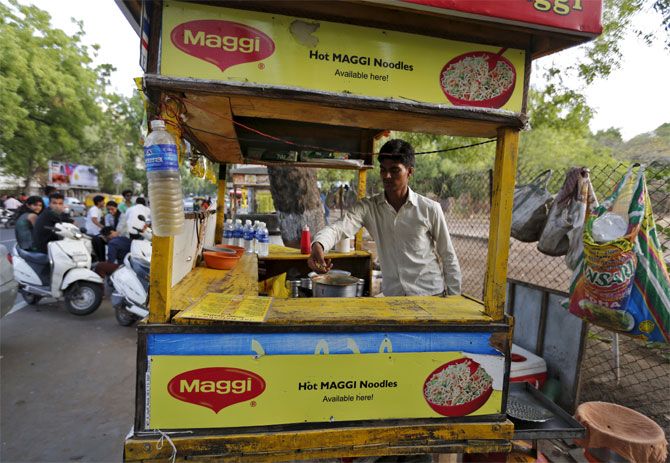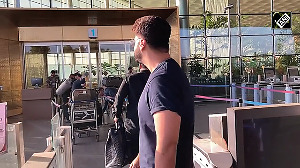Instant noodle from Nestle is not the first food brand in India to have faced a tough time though

Brands fight back and so can Maggi. The instant noodle from Nestle is not the first food brand in India to have faced a tough time though it scores over the previous ones in the attention it has generated.

Most of the previous instances are not fresh in minds of the consumers but these products now enjoy a stronger consumer trust. Instant drink powder maker Rasna was hit by a controversy surrounding brominated vegetable oil (unfit for human consumption) in the early nineties following which there was ban.
The company reformulated the drink, withdrew old stocks and regained consumers’ trust. Piruz Khambatta, chairman and managing director says he had not joined business then and did not recall much details.

The year was 1998. Samples of certain branded edible oil such as Dhara were found to be adulterated with toxic argemon mexicana oil which was believed to cause the fatal dropsy disease.
Interestingly, Dhara was the first packed branded edible oil of the country. The National Dairy Development Board which manufactured Dhara temporarily stopped sale of even refined oil though there was an issue only with unrefined mustard oil. Today, Dhara is Rs 350 crore brand, according to Mother Dairy which now owns it.
“Mistakes happen and problems occur. Brands show the tenacity to bounce back. If brands open up and communicate with the consumer and address the concerns, trust can be regained. Suppose Maggi loses a certain market share, in my view it will not take more than 18 months to regain it back”, said brand consultant Harish Bijoor.

Five years after the Dhara incident, in October 2003, a month before Diwali, there was complaints about discovery of worms in Cadbury Dairy Milk in Mumbai. The Maharashtra Food and Drug Administration seized chocolate stocks from Cadbury’s plant in Pune.
Cadbury maintained that poor storage at the retailers’ end was responsible. In that very month, the company launched ‘Vishwas’, an initiative to educate 190,000 retailers in key states. The efforts did not stop there. In January 2004, Cadbury spent Rs 15 crore to import machinery that revamped packaging by introducing metallic poly-flow material.
Sanjay Purohit, then executive director of Cadbury India, had told Business Standard that the company responded to consumers concern over the issue rapidly while the communication campaign worked effectively in giving out the central message.
Cadbury Dairy Milk has grown in size with time and the company also launched brand extensions such as Dairy Milk Silk. Cadbury India, now renamed as Mondelez India, today dominates the Rs 7,000 crore Indian chocolate market with over two-third market share.
Recalls and controversies are not limited to food products. In India and overseas, vehicle recalls happen every now and then. In India alone, over 800,000 passenger cars have been recalled since July 2012 when the auto industry association announced a voluntary recall policy.

The government has not come up with a recall policy. Maruti Suzuki, the country’s biggest car manufacturer, recalled over 137,000 vehicles and addressed the problem. R S Kalsi, executive director (marketing & sales) says if a company proactively recalls a product, it reinforces the trust.
“If such incidents happen once in a while, you can reassure the customers. However, frequent incidents can cause brand erosion”, he added.






